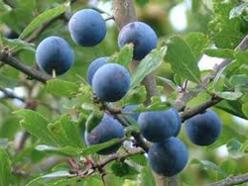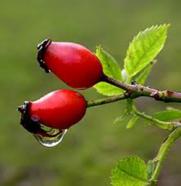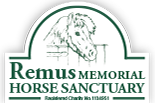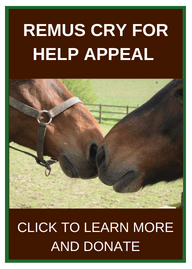


Herbs for Horses
Fancy a nice walk in the country to enjoy the clean, fresh air? And would you like to collect a free treat for the animals at Remus at the same time?
If you answered yes to either of these questions, then now is the time when nature’s harvest is ready; Rose Hips, Haw Hips, and Sloes are now ready to be picked. If you’re out enjoying a nice country walk, we would love you to pick some of these fruits for the Remus animals and bring them to the Sanctuary – they love fresh herbs and they are so good for them! They also enjoy Willow, think small branches with the leaves still attached, and although we appreciate this is perhaps not so easy to collect as the hips and berries!
This pony is one of a semi feral group helping with conservation in North Wales. He roams free and can help himself to all that nature can provide, including, as you see here, self-medicating on Rose Hips.
As you know, we at Remus love to provide our animals with herbs to help them to maintain themselves and help to lessen the effects of arthritis and skin problems to name just a few. They can’t go out into the country foraging as this lucky pony does, but you can!
If you think you would enjoy picking herbs for Remus please do make sure that you collect them only in a safe area, not on the roadside where you may be in danger from traffic. Also, and just as importantly, please don’t pick all of the available herbs. Although our animals like them, these fruits are the lifesaving winter food for many wild creatures, so please don’t strip the site, but perhaps only pick perhaps a few from each.
Caring for your Elderly Horse
Remus Memorial Horse Sanctuary, based in Ingatestone, Essex, will be hosting a one-day informational seminar on Saturday 15 November at The Holiday Inn, Brentwood, to educate horse owners on the differing care needs as their equines advance in age.
Tickets cost £30 and can be purchased online via Eventbrite.co.uk, or from the Remus office by contacting tel: 01277 356191 or by sending an email to: info@remussanctuary.org. Tickets will include light refreshments and a seminar handbook. The day will commence 10am, ending 3pm.
Companies interested in sponsoring the event should contact Alison Page of APM on tel: 07963 002065 or by sending an email to: promotions@remussanctuary.org.
Like humans, horses are living longer than their predecessors and, equally, as they start to age, will show signs of grey around the eyes, ears and muzzle, possibly deep lines and depressions on the face and some muscle degeneration. What may not be so apparent is difficulty eating, Laminitis, Arthritis, Cushing’s disease and Cataracts. The Remus elderly horse seminar will alert horse owners to these issues, providing information, tips and advice on what to look for and how to detect and address any developing problems early, with a view to minimising any discomfort to the horse and prolonging its life and wellbeing.
The following experts will be presenting during the day:
- Mark Murrell MA, VetMB, CertES(Orth), MRCVS, RCVS Certified Equine Orthopaedic Surgeon of Platt & Murrell Veterinary Surgery
- Tracey Hammond MSc (Dist) Equine Nutritionist of Dengie Feeds
- Dr Jo Ireland BVMS PhD Cert AVP(EM) MRCVS of Animal Health Trust
- Dena Schwartz, MICHT, ISAAP of The Holistic Approach
- Rachael Grundon, Clinician in Ophthalmology of Animal Health Trust
Sue Burton, founder of Remus Horse Sanctuary in 1983, said, “we know that horses have differing needs as they advance in age and we need to educate horse owners of these needs. Earlier this year we took in a mare at 47 years of age, in a pitiful state, but with a lot of care and attention, the right food and the right treatment, we’re already seeing her put on weight and improving her quality of life. It’s a joy to see.”
Remus Horse Sanctuary Host tESA Conference
Remus Memorial Horse Sanctuary will be hosting the Equine Shiatsu Association (tESA) Annual Conference at its premises in Essex on 27 and 28 September 2014.
Sue Burton, Founder of the Sanctuary, will open the conference followed by vet, Mark Murrell MA, VetMB, CertES(Orth), MRCVS, RCVS Certified Equine, talking about the support of Remus’ horses and the problems encountered working with those animals that have suffered neglect and trauma. This will be followed by group workshops to show and discuss different approaches to diagnosis and treatments. Non-tESA members are welcome and a booking form can be downloaded via the website atwww.equineshiatsu.org.
The Equine Shiatsu Association (tESA) exists to publicise the benefits of Shiatsu on horses and is also a support forum for people practising and training in Equine Shiatsu. tESA holds a Register of Practitioners in Scotland, England and also Europe for those who have attained a professional level of expertise in Shiatsu, and has a Code of Ethics to which members must adhere.
The word ‘Shi-atsu’ in Japanese means ‘finger pressure’ and the basic technique of Shiatsu involves pressure with fingers, thumbs and palms on areas of pain or sensitivity. Stretches and rotations are also an important part of the treatment, which aims to stimulate the body’s own self-healing abilities through increased blood circulation, lymphatic fluid movement and the activation of both divisions of the autonomic nervous system. The theories underpinning Shiatsu are those of traditional Oriental medicine, similar to Acupuncture theory.
Sue Burton said, “Remus work closely with tESA, and we’re delighted to welcome them to the Sanctuary’s premises. We practise Shiatsu on our own animals and we also organise a variety of workshops throughout the year in addition to Shiatsu, including Reiki, animal behaviour and our elderly horse care seminar in November.”
Laminitis Alert for Horse Owners
Remus Memorial Horse Sanctuary is warning horse owners to be aware that the rise of sugars in pastureland at this time of year causes a rise in glucose, potentially exacerbating any insulin-related issues in equines and thereby increasing the risk of Laminitis. Laminitis is a common, painful and ultimately devastating condition affecting the feet and hooves of horses and ponies.
The warning comes as the results of the National Equine Health Survey are released; finding that 7.15 percent of horses had suffered a bout of Laminitis in the previous year, with 43 percent of them recorded as first episodes. This contrasts with the 2013 survey data, which showed that 4.4 percent had suffered Laminitis, with 25 percent listed as first occurrences.
Remus Memorial Horse Sanctuary is recognised as one of the leading equine authorities on the treatment and cure of Laminitis, following its research and meticulous management strategy carried out over the past two years.
An underlying hormonal disease will cause up to 90% of cases of Laminitis and the two most common hormone, or endocrine, disorders of horses and ponies, are Cushing’s disease (now known as pituitary pars intermedia dysfunction or PPID for short) and equine metabolic syndrome (EMS).
As a result of determining that EMS was the cause of Laminitis at the Sanctuary, the team was able to treat the problem with medication, using a drug similar to that given to people diagnosed with Type 2 Diabetes, and sound management practice and have now virtually eradicated the incidents of Laminitis on the yard.
Sue Burton, founder of Remus Horse Sanctuary in 1983, and instigator of the studies alongside Liphook Equine Hospital and Boehringer Ingelheim, said, “Its worrying that Laminitis is shown as such an issue in the National Equine Health Survey. It’s very important that horse owners test to establish whether there is an endocrine disease causing the Laminitis, ie, PPID or EMS. By establishing this, the incidents of Laminitis can be reduced, giving the animal a better quality of life.”
Horse owners can visit www.talkaboutlaminitis.co.uk – a national disease awareness initiative provided by Boehringer Ingelheim Vetmedica – for more information. Until the end of October 2014, a voucher is available for free Cushing’s laboratory tests.
“Our animals’ comfort and wellbeing is vital at the Sanctuary,” says Sue. “The support we practice includes holistic treatments, stress management, and we are a no sugar yard, so that means no treats such as carrots or apples and no molasses. The horses with EMS, specifically, are taken off grass so that we can control what they eat, until the problem is controlled, and then they can be returned to pasture. We will be discussing all of these issues at our elderly horse seminar in November.”
Pictures of Scoobie on arrival / after clipping / healthy today.
Heart of Essex Awards Win for Remus Horse Sanctuary
Fran Smith and Vicky Hearn, both of Remus Memorial Horse Sanctuary, received a cheque for £500 on Thursday 7 August, at the Heart of Essex Awards ceremony at Hylands House, Chelmsford. The Sanctuary received the prize as ‘runners up’ in this year’s award.
Remus entered the Awards in May petitioning for funds to create a wheelchair accessible toilet at the Sanctuary. The charity relies totally on public donations and fundraising, and likes to give something back into the community and works, with the animals, to enhance the lives of others, visiting care homes for the elderly, and schools to show young people how to respect and care for their animals. At present, the Sanctuary has no disabled or wheelchair accessible toilet facilities to extend the invitation to visit the Sanctuary for blind, deaf and disabled groups. The £500 donation will go some way towards these facilities.
Founder, Sue Burton, says, “We are now actively seeking a sponsor, or sponsors, to raise the remaining sums to build the disabled toilet. It’s well documented how terminally ill and disabled people benefit from sensory experiences and we would like to be able to invite groups to the Sanctuary to enjoy time with the animals.”
Yellow Peril – The Plant that Poses a Deadly Threat to Horses
No caring horse owner would want their animal to stop eating, suffer stomach pains, struggle to breathe, go blind or even die. Yet this is what can happen to horses if owners fail to do one very important job as part of their care.
Remus Memorial Horse Sanctuary wants to educate horse owners on these effects of a horse that has eaten Ragwort – a weed that grows prolifically in fields throughout the UK. It is vital that horse owners learn how to recognise the yellow-flowered plant, and eradicate it from fields where their horses graze.
Where is Ragwort found?
Ragwort is found in fields across the country and the seedlings appear in the autumn, the rosettes in spring and the mature plants from May to October. They can be up to 2m tall. It may also find its way into hay, so owners also need to be vigilant when feeding their animals.
Why is it harmful to animals?
Ragwort is poisonous and damages the liver. The effects can build up over a length of time, so even if a horse only eats small amounts this can build up, having disastrous effects. Obviously they can also become extremely ill from eating large quantities.
The mature plants tend to be bitter, so horses will possibly avoid them, but young plants and dead plants lose their bitter taste so are especially dangerous.
How can people deal with it?
All plants must be removed. Remember that it can be harmful to humans too, so cover arms and legs and use gloves when pulling it up out of the field, and avoid inhaling the pollen too. The most effective way to remove Ragwort is to pull the plant up from the roots – special tools are available to help to remove roots. It is also possible to spray the area – agricultural merchants will be able to advise on suitable products. But be aware that the paddocks will need to be rested before the horses can go back on them – and all dead plants must be removed.
The Ragwort plants need to be carefully disposed of – burning is most effective – but it is best to speak to DEFRA for advice.
Remus Horse Sanctuary Appoints Education Officer
Remus Memorial Horse Sanctuary has recently appointed Cara Wilson as its Education Officer, with a view to creating and developing relationships within the Essex adult education and business sectors.
The main focus of the role will be to develop a range of educational services for Remus, from visiting a place of learning, to encouraging students of all ages to visit the Sanctuary. Visits will be tailored to meet the needs of the individuals, qualifications and experience required.
Cara Wilson, 37, born in London but schooled in Rayleigh, has recently moved back to the area.
She has a BSc in Animal Behaviour and Welfare and has been either lecturing about animals or working with them for nearly 15 years. In September, she will commence lecturing at Seevic College in Benfleet, covering two BTEC National Diploma syllabuses in animal care and management. Additionally, Cara runs a dog training school with pet behaviour counselling.
“I have a true passion for animal welfare”, says Cara, “I firmly believe that educating the next generation of animal owners is the way to improving animal welfare, for all species, and I’m really excited to be working with Remus.”
Sue Burton, founder of Remus Horse Sanctuary in 1983, further explained, “We already work closely within the local community including work experience placements and taking ponies to visit residential homes. However, Cara’s appointment will really allow us to expand into adult education. She will play an important part in raising awareness of our work, not only in Essex but the wide community and she’s a great addition to the team.”
Remus Horse Sanctuary Appeals to UK Ministers for Support
On Monday 21 July 2014 Sue Burton, founder of Remus Memorial Horse Sanctuary, met with Lord DeMauley, Parliamentary Under-Secretary (Department for Environment, Food and Rural Affairs), at Westminster to discuss the equine welfare crisis that exists in this country.
Furthermore, Sue and the Sanctuary fully supports the Private Members Bill being put forward by MP Julian Sturdy which should help tackle the problem of fly grazing in this country.
Fly grazing has become a huge problem in this country, with many thousands of horses being placed on private land, causing damage to fencing and land, and high financial cost for landowners to have them moved. The anomaly here is that once the animals are ‘dumped’ on the landowner’s property, they become responsible for the animals!
Sue said “There has to be more protection for landowners and we have to tackle the issue of fly grazing and make it illegal. We fully support this Bill and hope it makes steady progress through Parliament. We welcome any moves from the UK Government to help with the present equine welfare crisis.”
The Sanctuary has experienced one of its hardest financial years due to the impact of the welfare crisis. The winter was spent trying to help as many horses as possible, including taking many thousands of bales of hay out to those abandoned in fields, just to keep them alive. There are many thousands of horses at risk and, already, as the mares have foaled this year that problem has doubled, and the mares will be in foal again next spring further adding to the numbers.
Ordinarily, the welfare issue would ease by the summer months as the weather improves but, so far this year, this has not been the case as the dry weather has brought its own issues with very little fresh grass growth. Sue said, “The sheer volume of horses we have to deal with has put us under an enormous financial strain and we need the support of the Government to help deal with the legal side of the problem. We are desperately appealing to the animal loving public to help support our work; the Sanctuary always needs adult volunteers to help with a variety of tasks, from admin to mucking out stables. Donations can be made by cheque, or online via the website.”
Sue went on to say, “The UK Government has to stop burying its head in the sand and tackle the issue of horse welfare in this country. For too long welfare organisations have been left to pick up the pieces, but now they are inundated and under extreme pressure from the situation and the Government has to understand, acknowledge and make adequate provision within the legal framework to protect these beautiful and noble creatures”.
Remus Horse Sanctuary Live on TV
Animal welfare charity, Remus Horse Sanctuary, will be participating in a new television documentary later this month following the research and meticulous management strategy implemented by its founder, Sue Burton, over the last four years effectively eradicating Laminitis from its yard.
Laminitis and PPID are diseases every horse owner should know about, and the new dedicated veterinary documentary series ‘Vet Essentials’ will take an in-depth look at these conditions. The series will premiere on Horse & Country TV (Sky 280 and online with H&C TV Everywhere) commencing Wednesday 23 July at 9pm. Equine Cushing’s disease (also known as PPID) is one of the most common problems affecting the endocrine (hormonal) system of horses and ponies. PPID and Colic will feature in subsequent programmes on 30 July and 6 August respectively.
Remus is delighted to be included within the television series following its extensive work in conjunction with Liphook Equine Hospital and Boehringer Ingelheim, into identifying and treating the cause of Laminitis and therefore dramatically reducing the number of incidents at the Sanctuary. The Sanctuary’s work into Laminitis also featured in the June 2014 issue of Horse Magazine. “Laminitis was a huge concern to us, no matter what we did, we couldn’t stop it,” says Sue Burton, who set up the Sanctuary in 1983. “The turning point for the charity was the introduction of blood tests which can detect Cushing’s disease – now known as pituitary pars intermedia dysfunction, or PPID – and equine metabolic syndrome (EMS). As a result of determining which of these two problems was causing the Laminitis we have been able to treat the problem with appropriate medication and sound management practice and we have virtually eradicated the incidents of laminitis on our yard.”
For further information, visit www.remussanctuary.org or contact Sue Burton on tel: 01277 356191.
Tony Goat
Tony is our newest goat at the Sanctuary and arrived with us mid-June.
He was found straying on local roads and brought in to us by the RSPCA having suffered an horrendous injury to his mouth, which had been slashed from across his nose, causing it quite literally to hang off his face, poor chap.
Unfortunately, we don’t know how or why it happened. However, after treatment by the Vets and excellent nursing by our Staff, he’s now been allowed to join all the other goats in their pens and loves his life here at the Sanctuary with his new friends.
He’s a lovely boy!










